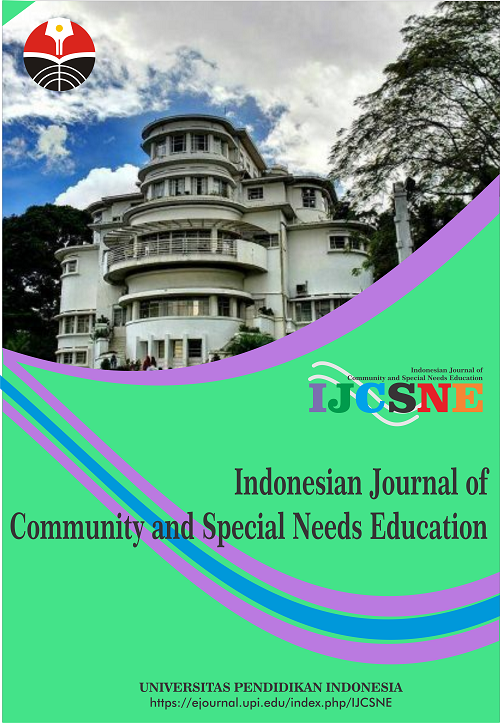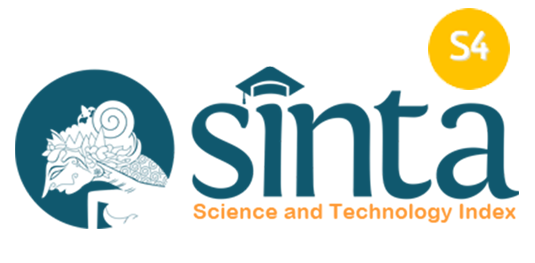Psychological Issues in Bangladeshi Children for Covid-19: Losing Interest in Education
Abstract
Keywords
Full Text:
PDFReferences
Ahmed, M. (2019). Education response to covid-19 in Bangladesh–a missing opportunity. Bangladesh Education Journal, 18(1), 7.
Al Mamun, F., Hosen, I., Misti, J. M., Kaggwa, M. M., and Mamun, M. A. (2021). Mental disorders of Bangladeshi students during the COVID-19 pandemic: a systematic review. Psychology Research and Behavior Management, 14(2021), 645-654.
Alam, M. K., Ali, F. B., Banik, R., Yasmin, S., and Salma, N. (2021). Assessing the mental health condition of home-confined university level students of Bangladesh due to the COVID-19 pandemic. Journal of Public Health, 30(4), 1-8.
Das, A., and Kusakabe, T. (2021). Impact of COVID-19 on pedagogical practices at secondary education in Bangladesh: Retrospective and prospective. Journal of international cooperation in education, 24(2), 113-129.
Ela, M. Z., Shohel, T. A., Khan, L., Jahan, N., Hossain, M. T., and Islam, M. N. (2021). Prolonged lockdown and academic uncertainties in Bangladesh: A qualitative investigation during the COVID-19 pandemic. Heliyon, 7(2), e06263.
Emon, E. K. H., Alif, A. R., and Islam, M. S. (2020). Impact of COVID-19 on the institutional education system and its associated students in Bangladesh. Asian Journal of Education and Social Studies, 11(2), 34-46.
Faisal, R. A., Jobe, M. C., Ahmed, O., and Sharker, T. (2022). Mental health status, anxiety, and depression levels of Bangladeshi university students during the COVID-19 pandemic. International journal of mental health and addiction, 20(3), 1500-1515
Hamilton, J. L., Nesi, J., and Choukas-Bradley, S. (2022). Re-examining adolescent social media use and socioemotional well-being through the lens of the COVID-19 pandemic: A theoretical review and directions for future research. Perspectives on psychological science: A journal of the Association for Psychological Science, 17(3), 662.
Holt-Lunstad, J., Smith, T. B., Baker, M., Harris, T., and Stephenson, D. (2015). Loneliness and social isolation as risk factors for mortality: A meta-analytic review. Perspectives on psychological science, 10(2), 227-237.
Islam, M. S., Mahmud, R., and Ahmed, B. (2021). Trust in Government during COVID-19 Pandemic in Bangladesh: An Analysis of Social Media Users’ Perception of Misinformation and Knowledge about Government Measures. International Journal of Public Administration, 46(4) 1-17.
Khan, M. M., Rahman, S. T., and Islam, S. T. A. (2021). Online education system in Bangladesh during COVID-19 pandemic. Creative Education, 12(2), 441-452.
Mahmud, S., Mohsin, M., Khan, I. A., Mian, A. U., and Zaman, M. A. (2021). Knowledge, beliefs, attitudes and perceived risk about COVID-19 vaccine and determinants of COVID-19 vaccine acceptance in Bangladesh. PloS one, 16(9), e0257096.
Mamun, M. A. (2021). Suicide and suicidal behaviors in the context of COVID-19 pandemic in Bangladesh: a systematic review. Psychology Research and Behavior Management, 14, 695.
Mannan, D. K. A., and Mannan, K. A. (2020). Knowledge and perception towards Novel Coronavirus (COVID 19) in Bangladesh. International Research Journal of Business and Social Science, 6(2), 76-79.
Mustari, S., Rahman, M. Z., and Kar, S. (2022). Psychological impact of school closure and social isolation on female students during Covid-19: A case study from Bangladesh. Prospects, 51(4), 685-699.
Rashid, S. M., Mawah, J., Banik, E., Akter, Y., Deen, J. I., Jahan, A., and Mannan, A. (2021). Prevalence and impact of the use of electronic gadgets on the health of children in secondary schools in Bangladesh: A cross‐sectional study. Health science reports, 4(4), e388.
Shafiq, S., Nipa, S. N., Sultana, S., Rifat-Ur-Rahman, M., and Rahman, M. M. (2021). Exploring the triggering factors for mental stress of university students amid COVID-19 in Bangladesh: a perception-based study. Children and youth services review, 120, 105789.
Shammi, M., Bodrud-Doza, M., Islam, A. R. M. T., and Rahman, M. M. (2020). COVID-19 pandemic, socioeconomic crisis and human stress in resource-limited settings: a case from Bangladesh. Heliyon, 6(5), e04063.
Sifat, R. I., Ruponty, M. M., Shuvo, M. K. R., Chowdhury, M., and Suha, S. M. (2022). Impact of COVID-19 pandemic on the mental health of school-going adolescents: insights from Dhaka city, Bangladesh. Heliyon, 8(4), e09223.
Tang, D., Comish, P., and Kang, R. (2020). The hallmarks of COVID-19 disease. PLoS pathogens, 16(5), e1008536.
Tasnim, R., Islam, M. S., Sujan, M. S. H., Sikder, M. T., and Potenza, M. N. (2020). Suicidal ideation among Bangladeshi university students early during the COVID-19 pandemic: Prevalence estimates and correlates. Children and youth services review, 119, 105703.
Yeasmin, S., Banik, R., Hossain, S., Hossain, M. N., Mahumud, R., Salma, N., and Hossain, M. M. (2020). Impact of COVID-19 pandemic on the mental health of children in Bangladesh: A cross-sectional study. Children and youth services review, 117, 105277.
DOI: https://doi.org/10.17509/ijcsne.v3i1.55726
Refbacks
- There are currently no refbacks.
Copyright (c) 2023 Universitas Pendidikan Indonesia

This work is licensed under a Creative Commons Attribution-ShareAlike 4.0 International License.















